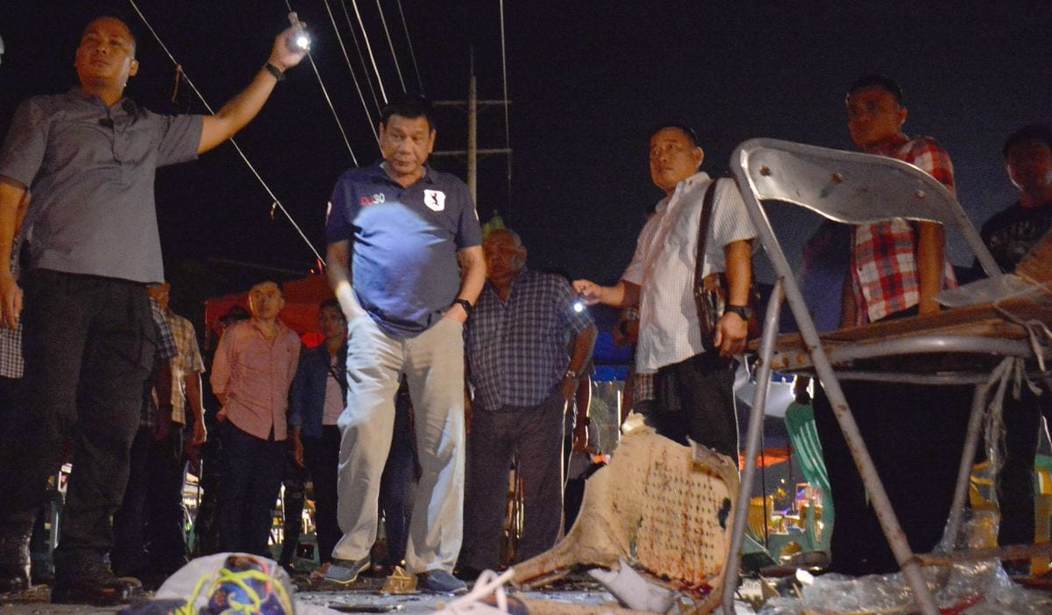At least 14 people were killed and more than 80 injured in an explosion that ripped through a popular market in Davao City, Philippines.
President Rodrigo Duterte described the attack as “terrorism” and said that the nation was in a “state of lawlessness.”
The government suspects the attack was carried out by the Islamic terror group Abu Sayyaf, which has been carrying on a low-level insurgency to win a Muslim state. But it is also possible that drug dealers were involved given the bloody war Duterte has been waging against them.
“We have to confront the ugly head of terrorism,” Duterte said Friday, standing near the explosion site in his hometown. “We will take this as a police matter about terrorism.”
The cause of the explosion, which happened around 10 p.m. ET Friday, is not known. But presidential spokesman Martin Andanar said components of a suspected improvised explosive device were found at the scene, according to CNN affiliate ABS-CBN.
No group has claimed responsibility, but Duterte said it’s possible the explosion “could be a reprisal” from extremists.
Philippine’s National Defense Secretary Delfin N. Lorenzana said he “assumes” the attack was carried out by the Islamist militant group Abu Sayyaf.
Duterte, the longtime mayor of Davao City, was elected President in May. He campaigned on a no-nonsense approach to crime and launched an intense — and deadly — crackdown on drug dealers.
The Philippine Daily Inquirer’s “Kill List” — regarded as one of the most accurate records of the killings of suspected drug dealers by police and vigilantes — has recorded 832 deaths since Duterte assumed office June 30. Police say at least 239 drug suspects were killed in the three weeks after Duterte’s inauguration.
The government’s heavy-handed tactics have drawn international criticism. Many public officials have been accused of being involved in the drug business.
And government troops have been battling Abu Sayyaf, which remains outside the country’s sputtering peace process.
The group aims to establish an independent Islamic state on the southern island of Mindanao, where Davao City is located.
Abu Sayyaf is a violent extremist group that split from established Philippines separatist movement Moro National Liberation Front in 1991. It was formed by Abdurajak Abubakar Janjalani, who trained in the Middle East and reportedly met with al Qaeda leader Osama bin Laden.
According to a government source, Abu Sayyaf has taken responsibility for the attack. But another source says they have disavowed any knowledge of the bombing.
Duterte is likely to use this bombing to further crack down on drug dealers and other criminals. This will prove popular with the Philippine people who have tired of the violence the drug trade has brought to the country.










Join the conversation as a VIP Member